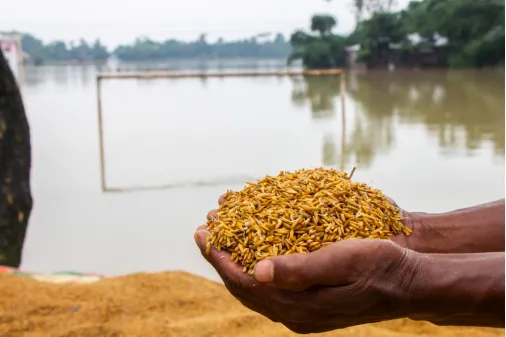
Between June and July month, the SHOUHARDOIII program conducted its annual Beneficiary Based Survey (BBS) and captured the impact of recent price hikes on the life of the program participants. The SHOUHARDOIII program reaches over 475,228 members of 168,535 poor and extremely poor households in Bangladesh. The findings of the annual survey confirm that households are experiencing an increase in the price of essential commodities over the last six months.
Approaches that achieve gender equality, that move beyond the individual level to address greater interpersonal, socio-cultural, and community factors that influence gender attitudes and behaviors, have been shown by rigorous impact evaluations to be impactful in promoting gender-equitable attitudes (e.g., SASA! Program in Uganda), reducing gender-based violence (e.g., Stepping Stones and Creating Futures program in South Africa), and decreasing social acceptance of intimate partner violence (e.g., RESPECT program in Tanzania). Read the report to find out more. Read More
Two numbers set the frame for the food security situation in the world today. 282 million people are very hungry in the world (acutely food insecure). 84.2 million more women and girls are hungry than men and boys. Food insecurity is a huge global problem, and it’s highly unequal. The Starving for Equality research shows how gender inequality isn’t just a woman’s problem; it’s also bad for men and boys. The research also shows that inequality makes men and boys hungrier, too. Read More
When crises hit, women step-up as leaders, engaging hands-on to navigate challenges. Women leaders are often overlooked and unsupported in times of crisis, yet they continue to make considerable contributions. They deliver essential health and nutrition services to the most vulnerable. They document human rights abuses and work to make communities safer. They strengthen their livelihoods through resourcefulness and creativity. CARE's Women in War research shows that women are the key to effective crises recovery and long-term peacebuilding. By removing barriers to their participation and amplifying the critical work they are already doing, we can give women the recognition they deserve and empower them to change the future of crisis response. Read More